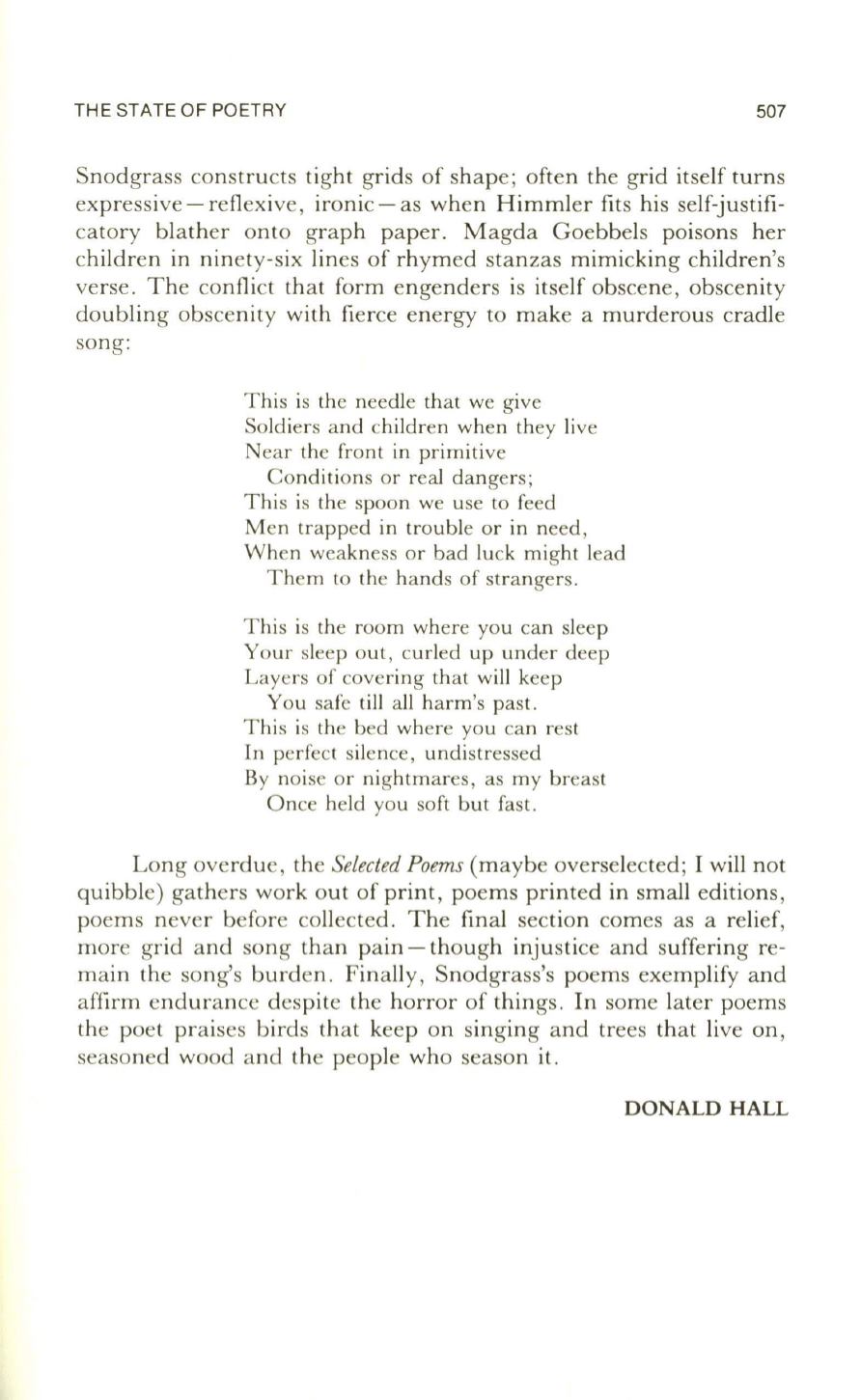
THESTATEOFPOETRY
507
Snodgrass constructs tight grids of shape; often the grid itself turns
expressive - reflexive, ironic - as when Himmler fits his self-justifi–
catory blather onto graph paper. Magda Goebbels poisons her
children in ninety-six lines of rhymed stanzas mimicking children's
verse. The conflict that form engenders is itself obscene, obscenity
doubling obscenity with fierce energy to make a murderous cradle
song:
This is the needle that we give
Soldiers and children when they live
Near the front in primitive
Conditions or real dangers;
This is the spoon we use to feed
Men trapped in trouble or in need,
When weakness or bad luck might lead
Them to the hands of strangers.
This is the room where you can sleep
Your sleep out, curled up under deep
Layers of covering that will keep
You safe till all harm's past.
This is the bed where you can rest
In perfect silence, undistressed
By noise or nightmares, as my breast
Once held you soft but fast.
Long overdue, the
Selected Poems
(maybe overselected; I will not
quibble) gathers work out of print, poems printed in small editions,
poems never before collected. The final section comes as a relief,
more grid and song than pain - though injustice and suffering re–
main the song's burden. Finally, Snodgrass's poems exemplify and
affirm endurance despite the horror of things. In some later poems
the poet praises birds that keep on singing and trees that live on,
seasoned wood and the people who season it.
DONALD HALL


